Raging bull: Taxi Driver screenwriter Paul Schrader on the perils of DIY cinema and surviving Lindsay Lohan
The 67-year-old American director has had a rough ride from film critics over his new low-budget adult thriller, The Canyons, starring Lindsay Lohan and scripted by his friend, the writer Bret Easton Ellis
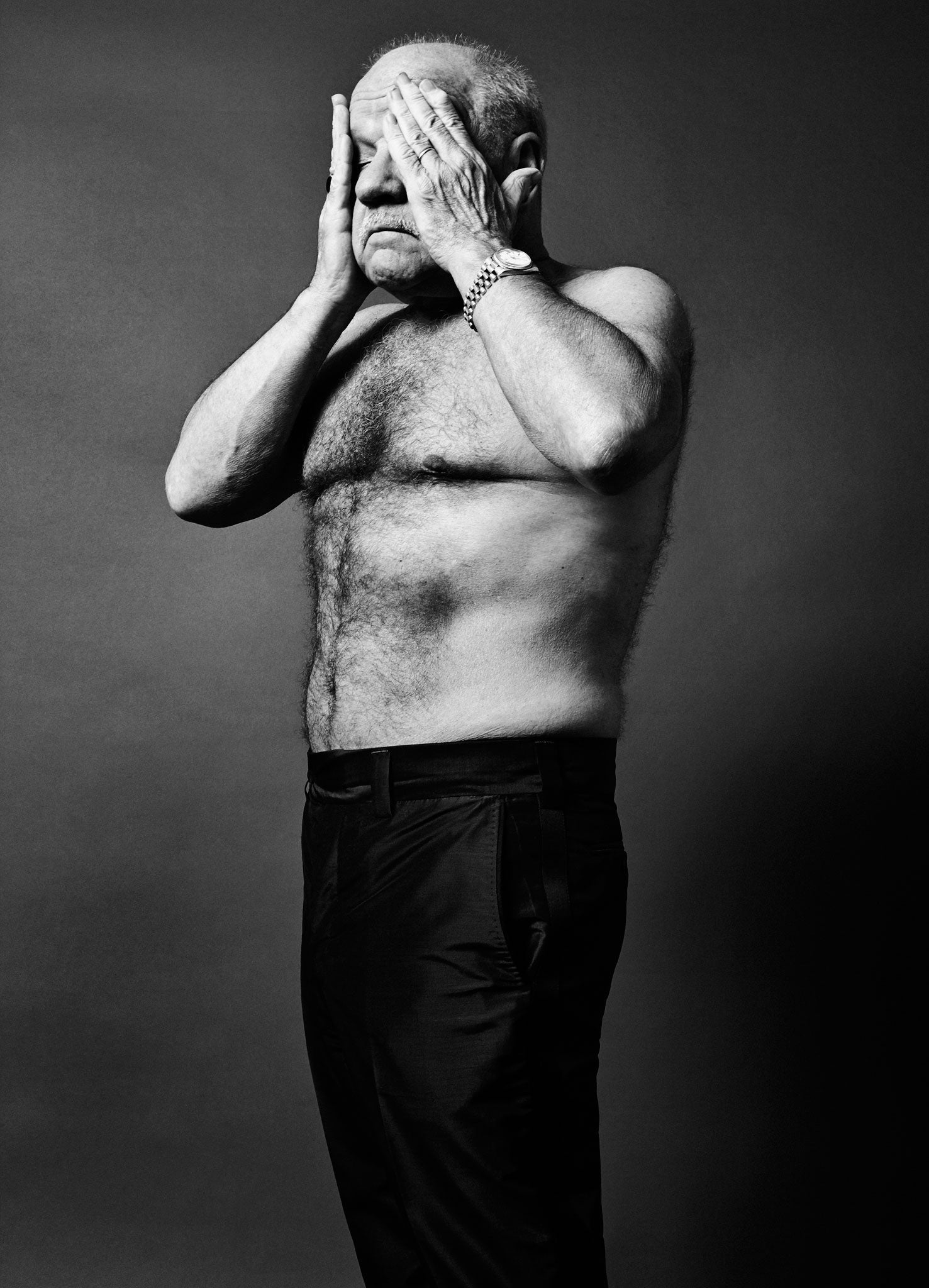
Your support helps us to tell the story
From reproductive rights to climate change to Big Tech, The Independent is on the ground when the story is developing. Whether it's investigating the financials of Elon Musk's pro-Trump PAC or producing our latest documentary, 'The A Word', which shines a light on the American women fighting for reproductive rights, we know how important it is to parse out the facts from the messaging.
At such a critical moment in US history, we need reporters on the ground. Your donation allows us to keep sending journalists to speak to both sides of the story.
The Independent is trusted by Americans across the entire political spectrum. And unlike many other quality news outlets, we choose not to lock Americans out of our reporting and analysis with paywalls. We believe quality journalism should be available to everyone, paid for by those who can afford it.
Your support makes all the difference.As he drinks his morning coffee, Paul Schrader helps himself to a selection of pills. (He doesn't say what they are for.) The 67-year-old American film director is in good humour, in spite of the rough ride that some of the critics have given his new film, The Canyons, starring Lindsay Lohan.
"Oh, yeah, yeah," Schrader exclaims when I ask if he actually enjoyed making the film. After all, as has been well chronicled, Lohan wasn't at all easy to work with. He told a press conference at the Venice Film Festival last year that he was "a free man" at last, after being held hostage by Lohan for the 16-month duration of their collaboration. She didn't even turn up for the film's festival premiere, later citing concerns for her "health and well being" for not being present.
Given that Schrader had arranged for The Canyons to screen in Venice rather than Locarno (where it had originally been invited) so that Lohan could attend, he had every right to be peeved. The impression he gives, though, is one of relief, albeit tinged with exasperated affection, that he is finally rid of his troublesome leading lady.
"All the time you realise that just because she [Lohan] is saying something, it doesn't mean it will happen. Then she says she is not coming [to Venice]. But you also realise that just because she says she's not coming, it doesn't mean she is not coming either!" Schrader roars with laughter. "That can be exhausting."
The Canyons appears to have been a daunting shoot. Nonetheless, Schrader relished the chance to make a low-budget adult thriller scripted by his friend, the writer Bret Easton Ellis. He also saw the project as a chance to explore what he calls the "new paradigm of filmmaking" and to see if it was feasible "to DIY a film – whether it was possible for me, at this stage in my life and career, to make such a film, using all of the new social media. It was conceived and cast and financed and crewed and exhibited through social media at a micro-budget."
Nothing about The Canyons was done in the way Schrader had worked before. The director himself, together with Bret Easton Ellis and the producer Braxton Pope, put up $90,000 (£55,000) of the $250,000 (£153,000) budget. They found their actors (Lohan and the other lead, porn star James Deen, excepted) by trawling online.
Schrader suggests that Easton Ellis's work had "been not terribly well served by the cinema". Few of the previous movie adaptations of his novels (American Psycho, Less Than Zero, etc) had captured the bleakness of his vision or his highly-stylised approach to character. On The Canyons, neither the director nor writer had to answer to anyone other than themselves. They had full creative freedom – at least as far as they could stretch it on their minuscule budget.
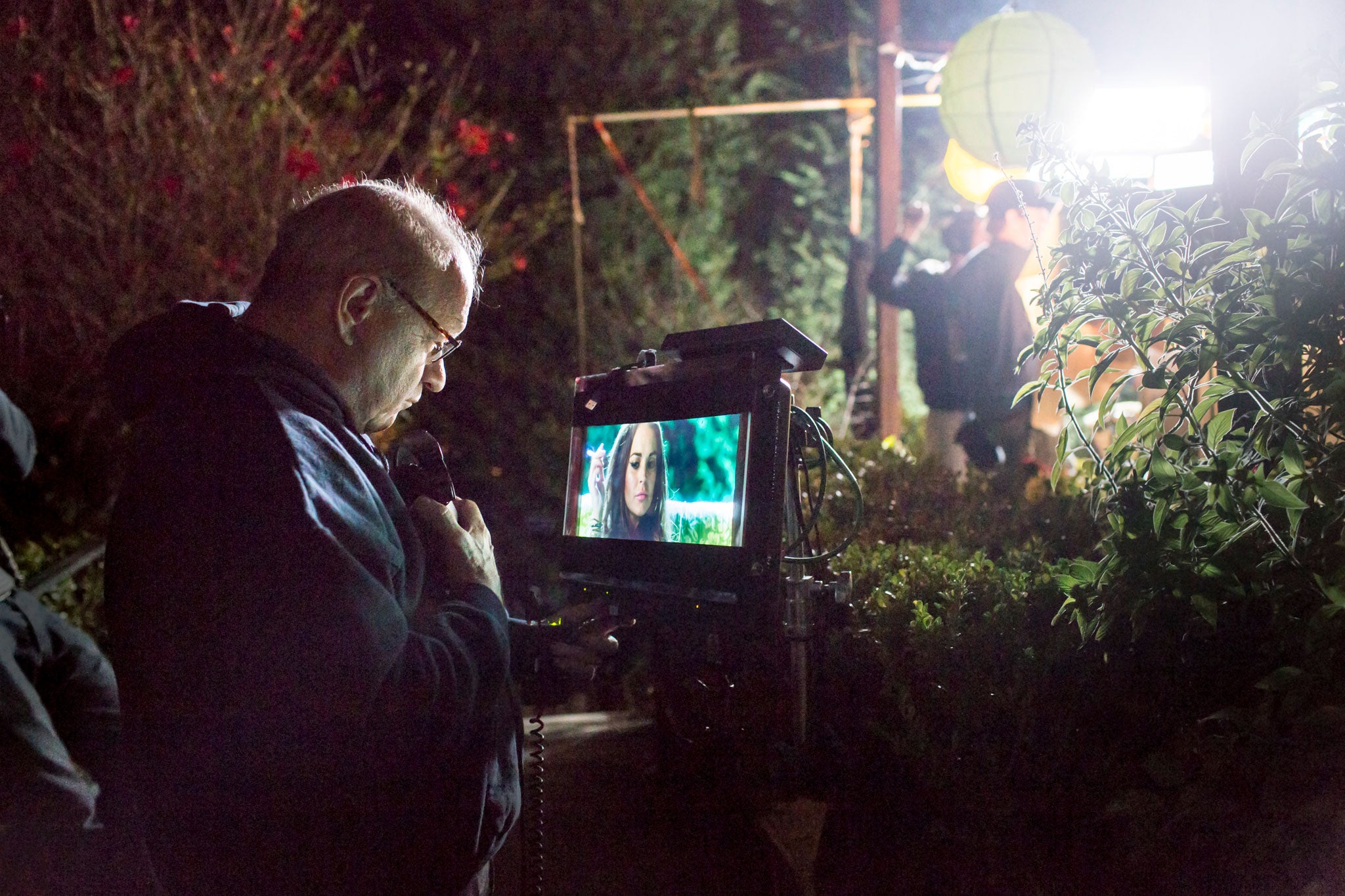
The trashing of The Canyons began before anyone had actually seen the film. A New York Times journalist called Stephen Rodrick had been given access to the shoot to write an article about its low-budget, multimedia strategy. Then, Lindsay Lohan came aboard. When Rodrick's article was finally published under the headline 'Here Is What Happens When You Cast Lindsay Lohan In Your Movie', it was all about Lohan and the chaos she left in her wake.
"I said to her [Lohan] that the New York Times is going to be there every day," Schrader remembers. "They will see how responsible and professional you are. It will put an end to all these stories that you are not employable."

Watch Apple TV+ free for 7 days
New subscribers only. £8.99/mo. after free trial. Plan auto-renews until cancelled

Watch Apple TV+ free for 7 days
New subscribers only. £8.99/mo. after free trial. Plan auto-renews until cancelled
Of course, this wasn't at all what the story showed. "It was by and large correct," Schrader suggests of the mayhem the Times portrayed, but he adds, "like all reportage, it was all out of context."
As the director ruefully notes, "the general public does not differentiate between a troubled production and a troubled film". The article helped cement the perception that the movie was heading towards the reef.
Schrader is an immensely distinguished screenwriter and director, with credits ranging from Taxi Driver to Raging Bull, from Cat People to Mishima. He also has his own well-honed reputation for stirring up controversy. As the writer of American Psycho, Bret Easton Ellis has always polarised opinion. James Deen is a porn actor who has made thousands of hardcore films. These are three big, opinionated personalities, but they were utterly eclipsed by the star they hired for The Canyons.
"It is not possible to separate yourself from the Lindsay Lohan phenomenon," Schrader acknowledges. "That was never anything we wanted to do. When you make a micro-budget film and when 10,000 other people are making a film like yours, how do you get anybody to notice you?"
Thanks to Lohan, The Canyons has certainly been noticed. She gives a full-blooded performance as an actress cheating on her movie-producer boyfriend (James Deen), who turns out to be even more deceitful than she is. Her character is supposed to be in her twenties, but Lohan – who is not very flatteringly lit – looks older than that. She reminded me of an aging diva in a Tennessee Williams play.
Schrader's remarks about her at the Venice press conference for The Canyons were far from gracious. His annoyance with her time keeping and unreliability can't help but rekindle memories of Billy Wilder's exasperation with Marilyn Monroe. But isn't this how stars are supposed to behave?
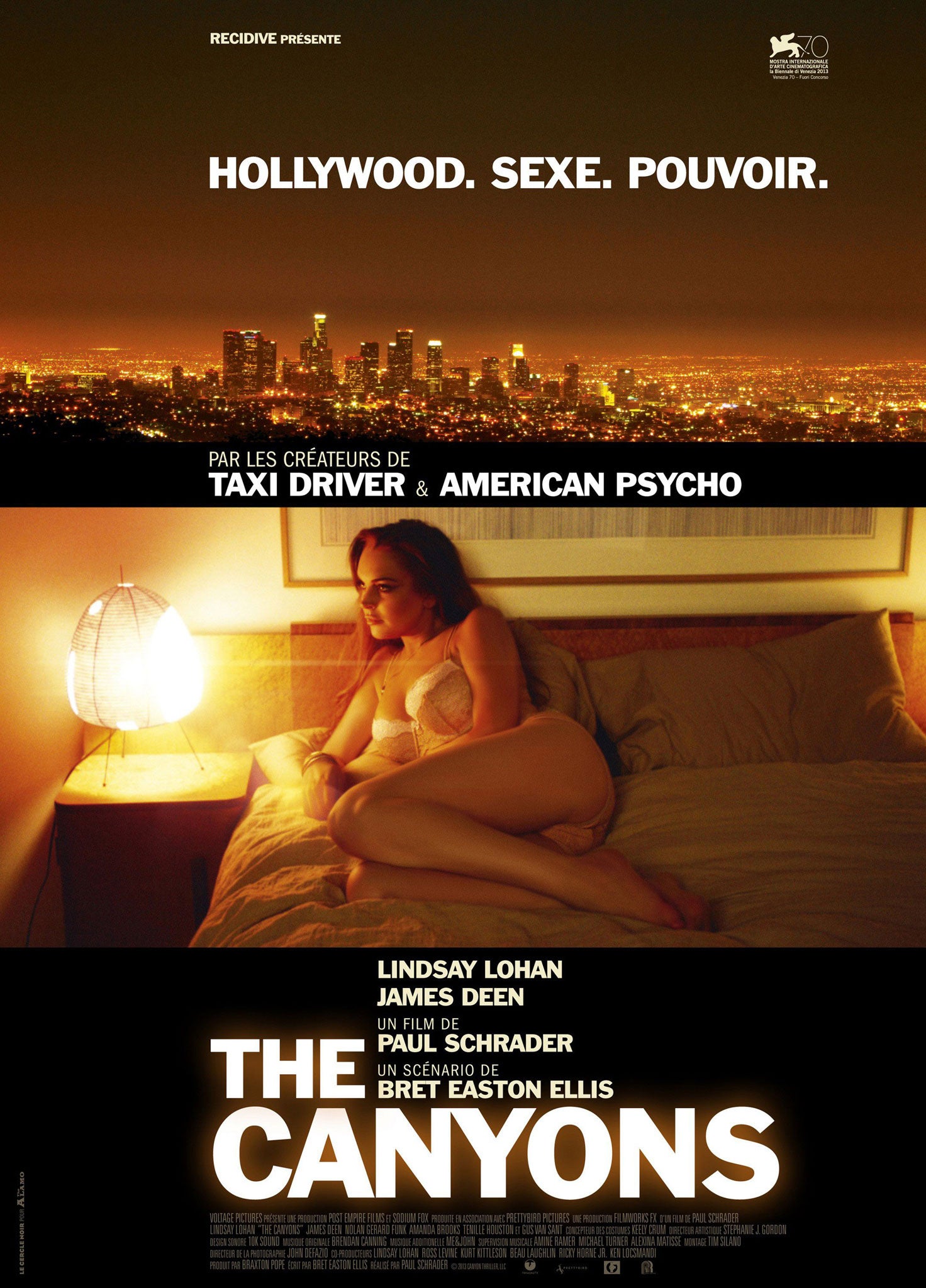
"I had the same feelings when I worked with Richard Pryor [on Blue Collar]," Schrader reflects. "When you are working with someone who lives in a world of crisis and unpredictability, you're never really relaxed. You never know from one moment to the next. You're working with Richard Pryor and everybody is smiling. Then, half an hour later, he is angry and he walks out. You never know if he is going to come back. You're living that way all the time. It's just like that with Lindsay."
The movie business, Schrader points out, hates unpredictability. There is too much on the line. "That's why Lindsay can't get hired. She can't get insured because she has an unpredictable reputation. I was meeting with Nic Cage and he was talking about someone wanting to hire her for a film he was doing. He said, 'When I am ready to work, will she be ready to work?'. I said, 'I can't answer that, Nic'."
Yes, the director was ready to make allowances for Lohan. After all, this was a low-budget movie. She is credited as a producer. Without her, the film would lose much of its allure.
"She is so fucking charismatic. You can't take your eyes off her. She has that thing that we watch in movies – which is all the more pity that she can't separate her personal from her professional life and discipline her professional life. Even actors who have erratic personal lives learn to discipline their professional lives, because they want to work so much. But the moment you start not showing up and the moment you cause trouble where no trouble needed to be caused, people start wondering whether the fucking they're getting is worth the fucking they're given."
For Lohan herself, after a career as a child and teen star in romantic comedies, The Canyons must have been a very daunting prospect. Schrader acknowledges as much and praises the intensity she brought to the role.
On such a low-budget film, it was essential to rehearse intensively. There wasn't the time or money to change scenes during shooting itself. The director was startled by Lohan's "phenomenal" memory and her ability to pick up dialogue after only reading through it once. In a crucial early scene of the film, which runs for over seven minutes (but was over 12 minutes as originally shot), she didn't get a word out of place.
"Even when things are going well, there would be some kind of crisis invented just because that is her working environment," Schrader chuckles. "You'd be there one day and say things are really going well today, I wonder what it is going to be. Then, all of a sudden, 15 minutes later, there would be a big blow-up and 'I am not coming in blah blah blah'. Or, 'I want to change my make-up' halfway through a scene. This girl has been in movies her whole life. She knows you don't change your make-up halfway through a scene. So why is she doing that? She is doing that to create a thing and then all the attention is on her again... As I said to her many times, 'It just must be exhausting to be you and to live in this way!'."
Schrader pauses. "God bless her... hopefully, she is on the right path > now. She is 27. There are not going to be that many more opportunities to get on the right path."
The Canyons has made a profit. Lohan was working for $100 (£61) a day with a $250,000 (£153,000) deferred fee, which she has now received. The filmmakers have also recouped their money through the US distribution deal they struck with IFC Films.
"We got lucky. A lot of things should have gone wrong. They didn't go wrong. Making a film with Lindsay without insurance – God forbid she gets arrested! Then your film is over. I do feel we went into the casino and put everything on red – and it came up red. But I am of a mind now to get out of that fucking casino."
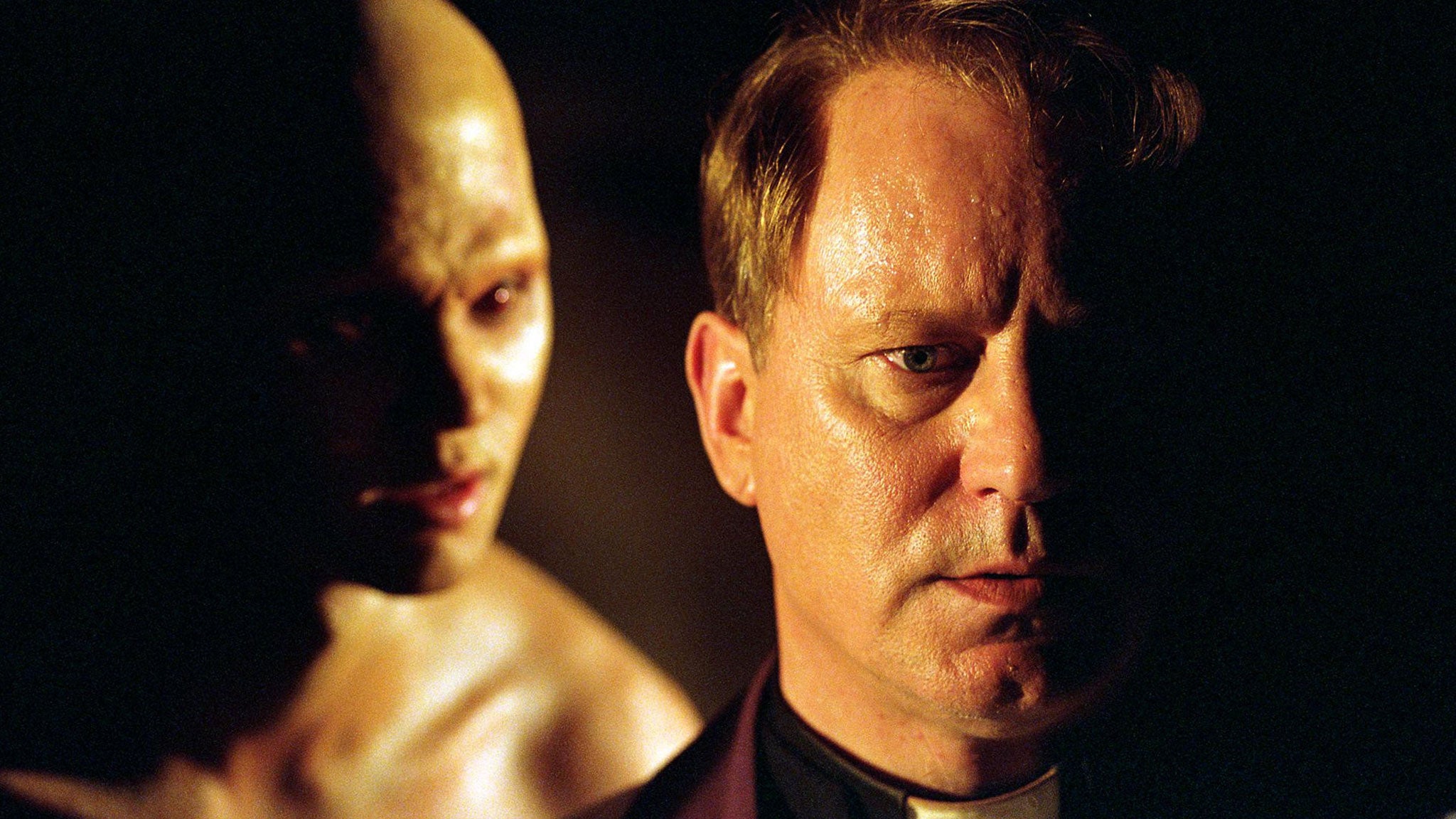
The money, though, is hardly the point. Schrader has a reputation to protect and he can't have found it easy to have been treated as if he is just another director of sleazy exploitation pictures. He talks of "the huge, large predisposition against us. Even in the media, that since the advent of the internet has become much more gotcha, BuzzFeed-snapshot driven, this was a package that was irresistible."
To his dismay, the serious critics joined with the gossip sites in pillorying The Canyons. Festivals rejected the film. To Schrader's fury, one – SXSW in Austin, Texas – went public with its reservations about the movie. A release in UK cinemas failed to transpire.
The fuss over Lohan has blinded many observers to the film's pessimism about the future of traditional cinema. Schrader opens the movie with a montage of images of closed and derelict cinemas.
"The only reason we had theatres is that it was the best way to monetise motion pictures," Schrader speaks about cinemas in the past tense. "The public didn't say, 'Oh, we would love to get together in a dark, hot, sweaty room and watch a moving image'. They [exhibitors] realised the best way to make money was to get several hundred people and show it at one time."
The moment for cinema may have passed now, Schrader suggests. We are in an era where we watch moving images on mobiles devices.
Along with cinema itself, Schrader believes that film criticism is withering, too. Earlier in his career, before he became a screenwriter and director, he was a critic and a protégé of the New Yorker's celebrated reviewer, Pauline Kael.
"There was a golden age of criticism which really came from the golden age of film itself," the director suggests. "You know, when film was at the centre of the culture and was dealing with all these social issues from civil rights to gay rights to militarism to women's rights – that was a great time. It wasn't a great time because we had more artists. It was a great time because it was a great culture for arts. When you have a great culture for arts, you get great artists and you get great critics and everything blooms. There are just as many talented people around today, but the Petri dish is not as nourishing."
When The Canyons was released in the US last August, its distributors only showed it in a handful of theatres and it did lamentable business, barely racking up $50,000 (£30,600). However, it was given a multi-platform release ("75 million homes, Amazon, iTunes") and is said to have reached a sizable audience online, thereby proving its director's point about the end of traditional cinema.
If Schrader is right, it is a dismaying thought. The Canyons is an intriguing experiment, but on the big screen (as Schrader himself acknowledges) it lacks the polish and production values of Schrader's own earlier movies. In particular, as many reviewers have pointed out, it seems a little shoddy by comparison with the similarly-themed and ultra-sleek American Gigolo (1980) which he made with Richard Gere as its star and the best production and design crew that the studios could provide.
The Canyons is described by its director as a "post-Empire film". It is set in an America whose powers and influence are waning. The problem is that no one realises. The characters are "cold, dead" people in a "cold, dead world" (to borrow Bret Easton Ellis's formulation). The film's misgivings about the future of cinema itself are matched by its cynicism about the aspirations and behaviour of young people in the era of social media.
Whatever the battles he faced in making and distributing the film, Schrader doesn't seem in the slightest bit bitter. The New York Times had suggested that this was his last chance to re-establish himself as a bankable filmmaker. The way Schrader describes it, every film is a last chance – that's the nature of the business.
"The vast majority of films that I have made, I have cobbled from the scraps that have fallen off tables. I've put them together myself, financed them, raised the money... I've been doing this since June 1975. Just because I am doing it now, 40 years later, doesn't mean it's my last chance. It just means I am working the way I always have."
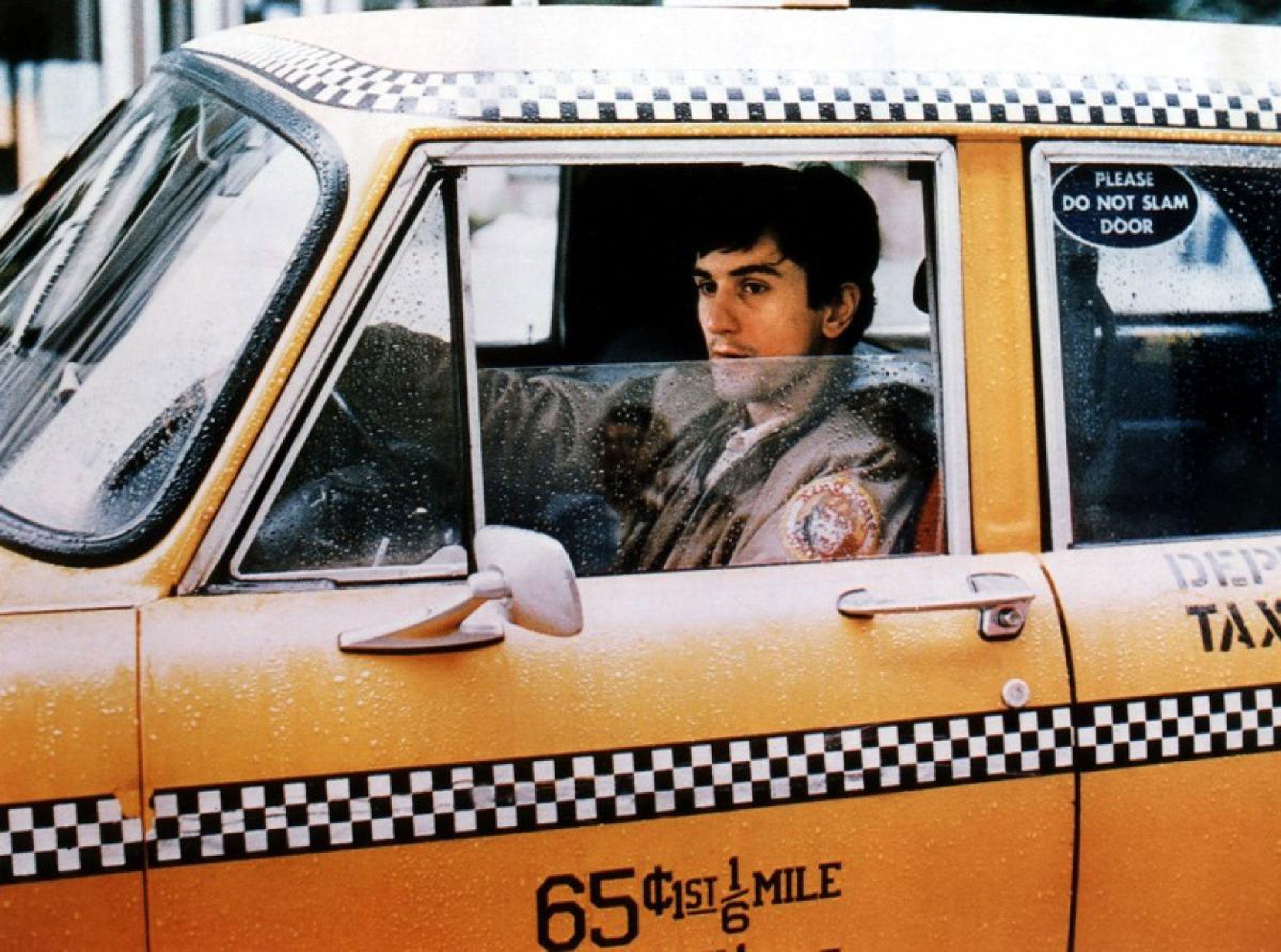
Schrader is currently in production in Romania on The Dying of the Light, a new thriller with Nic Cage starring alongside Irène Jacob (Krzysztof Kieslowski's muse a generation ago) and Anton Yelchin.
Schrader isn't paying for this one himself. He describes it as "a character study in the format of a thriller". The film is about a veteran CIA agent who is being forced out of his job. His memory is going. At the same time, he discovers that someone who tortured him 20 years before, and has long been presumed dead, is still alive. Schrader likens the script (which he wrote himself) to The Boys from Brazil.
Schrader is also trying to hatch a TV series with his old collaborator Martin Scorsese, but isn't sure whether this will happen. No, he didn't approve of the idea (announced in the film trade press a couple of years ago) for Lars von Trier and Scorsese to collaborate on a loose follow-up to Taxi Driver.
"It was a terrible idea," Schrader declares with typical bluntness. "Marty and Lars were talking about it in Cannes and somebody in Lars' camp stupidly talked about it, but in Marty's mind, it never was something that should be done. We really have fought over the years to keep people's hands off Taxi Driver, to keep it from being a video game and to keep it from having a sequel. It's a one-off kind of film."
In his late sixties, Schrader retains the defiance and adolescent zeal that marked him out as such a distinctive voice in the Taxi Driver era. He remains committed to filmmaking, even if he doesn't know where or how he will be making his films in future.
"I began in the studio system. Then the studio system stopped making the films that I was interested in, so I went over to the independent system for 20 years. Then I ran into trouble in the independent system, so I went into the DIY system..." His voice tails off as he realises he is not quite sure what the next stop will be.
'The Canyons' is released on DVD and On Demand later this year. Watch the trailer
Schrader's hits
Taxi Driver (1976)
Paul Schrader's screenplay for 'Taxi Driver', written when he was 26 and in a "low and bad place", had a searing energy that director Martin Scorsese and star Robert De Niro (as Travis Bickle) very effectively harnessed. This was the first of Schrader's "outsider" films about a "man alone". If Travis Bickle was a vigilante, he was one with existential leanings.
American Gigolo (1980)
Schrader's most stylish movie. Richard Gere is the male escort in LA, a narcissistic outsider wearing Armani.
Affliction (1997)
James Coburn won an Oscar for his performance as the mean-spirited father of a small-town cop (Nick Nolte) in this bleak but powerful adaptation of a Russell Banks novel.
Schrader's misses
Touch (1997)
Comedy isn't Schrader's strong point. This Elmore Leonard adaptation couldn't help but seem lightweight by comparison with the Calvinist filmmaker's usual fare.
Dominion: Prequel to The Exorcist (2005)
Schrader was fired from this 'Exorcist' reboot when he had already shot the film. Renny Harlin replaced him. However, Schrader later managed to finish his own version, which was reviewed almost as negatively as the Harlin film.
Join our commenting forum
Join thought-provoking conversations, follow other Independent readers and see their replies
Comments